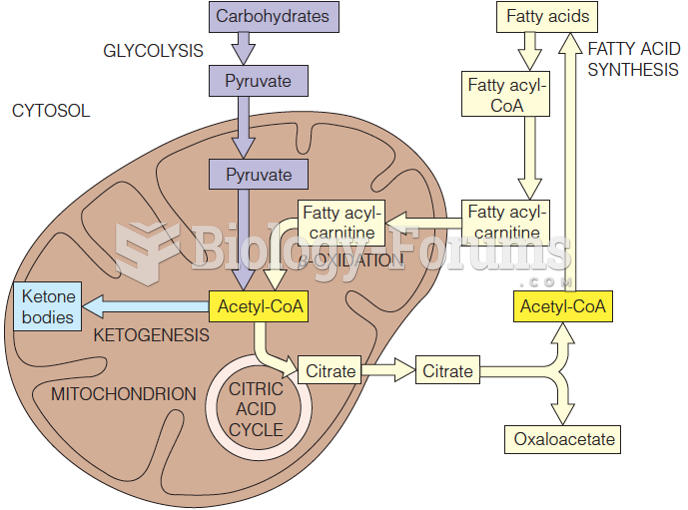|
|
|
Symptoms of kidney problems include a loss of appetite, back pain (which may be sudden and intense), chills, abdominal pain, fluid retention, nausea, the urge to urinate, vomiting, and fever.
Human neurons are so small that they require a microscope in order to be seen. However, some neurons can be up to 3 feet long, such as those that extend from the spinal cord to the toes.
Always store hazardous household chemicals in their original containers out of reach of children. These include bleach, paint, strippers and products containing turpentine, garden chemicals, oven cleaners, fondue fuels, nail polish, and nail polish remover.
Famous people who died from poisoning or drug overdose include, Adolf Hitler, Socrates, Juan Ponce de Leon, Marilyn Monroe, Judy Garland, and John Belushi.
The first successful kidney transplant was performed in 1954 and occurred in Boston. A kidney from an identical twin was transplanted into his dying brother's body and was not rejected because it did not appear foreign to his body.
 Retrograde pyelography (RP). Note the contrasting of the renal calyces, ureters, and bladder followi
Retrograde pyelography (RP). Note the contrasting of the renal calyces, ureters, and bladder followi
 This portrait of Thomas Jefferson is considered an accurate likeness, painted when he was thirty-sev
This portrait of Thomas Jefferson is considered an accurate likeness, painted when he was thirty-sev





